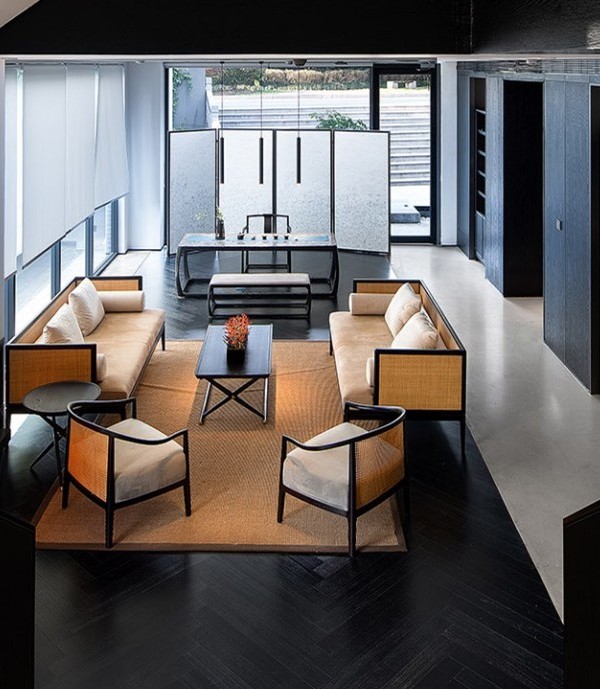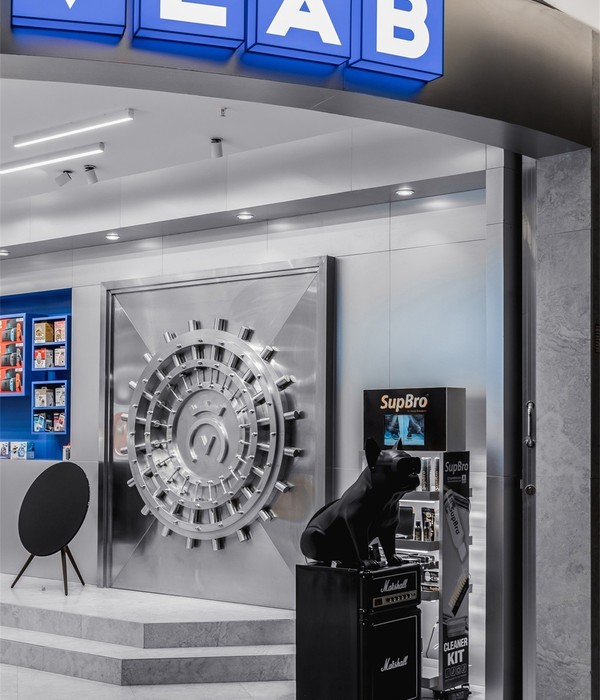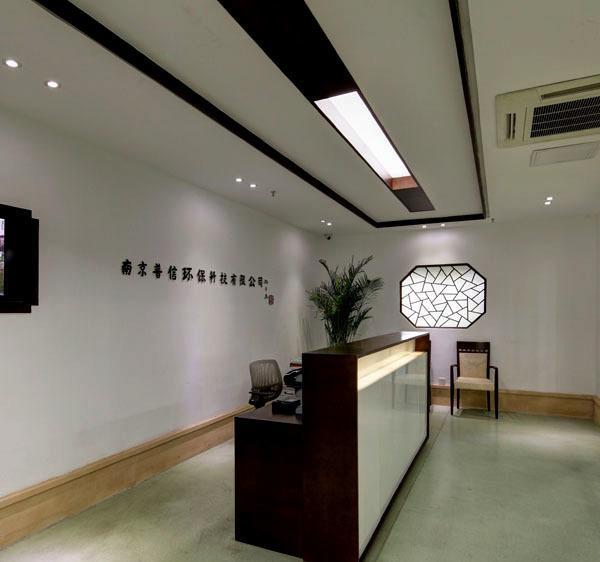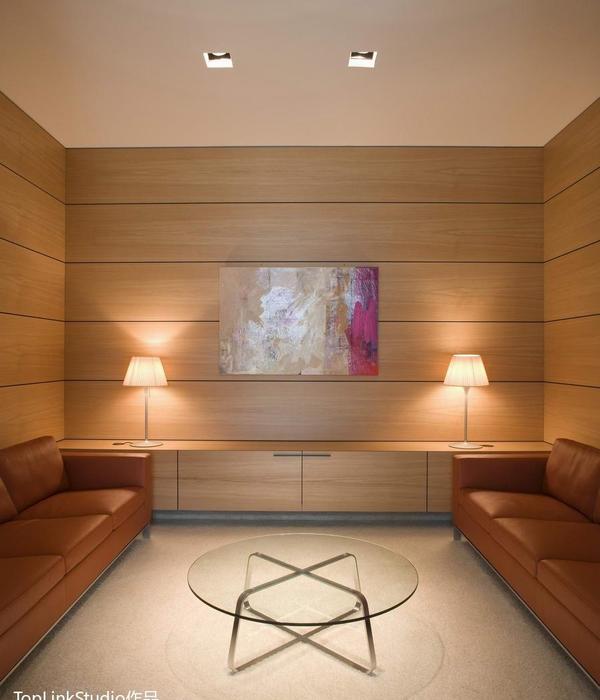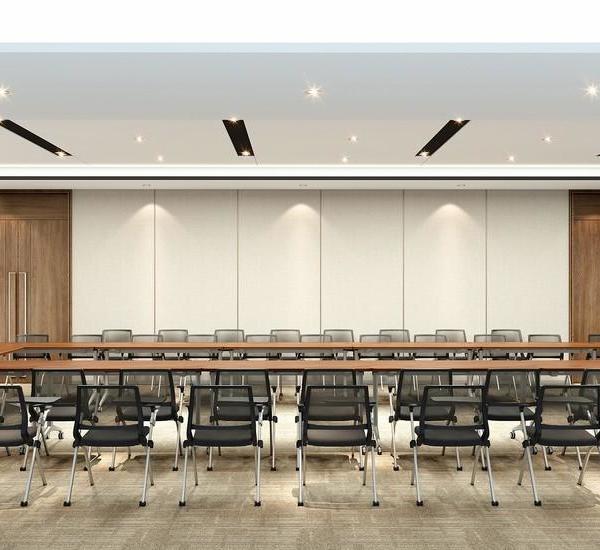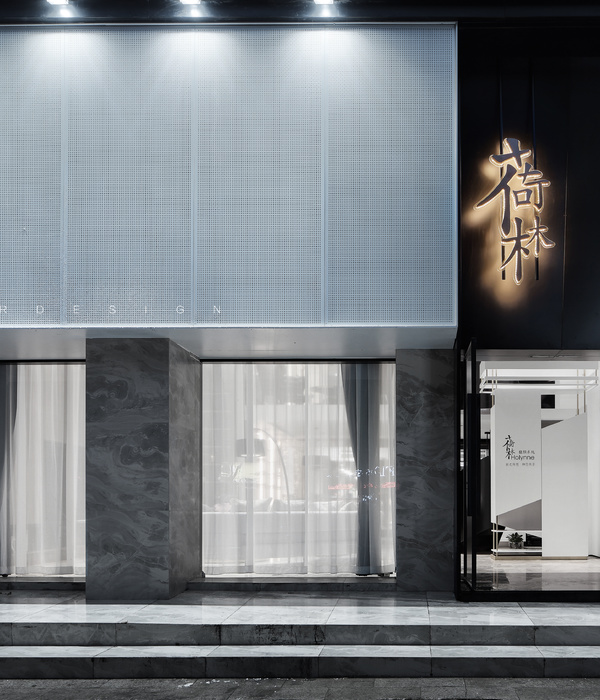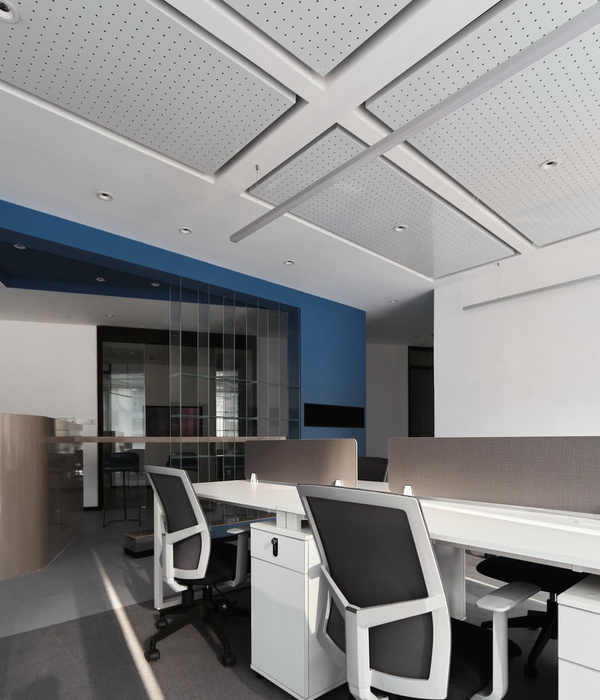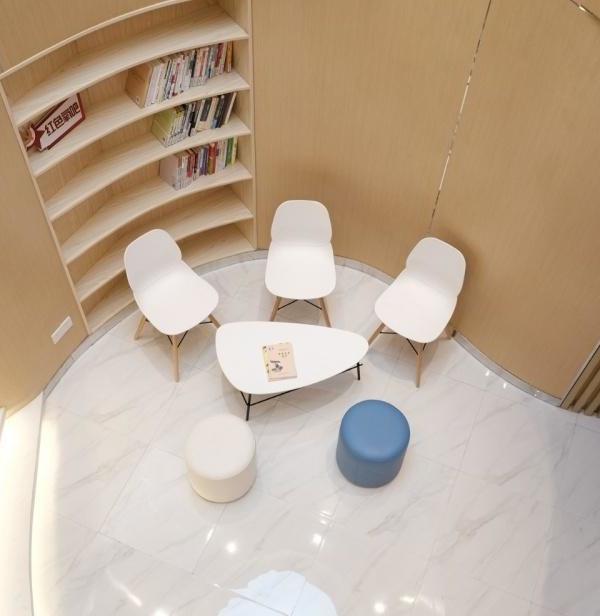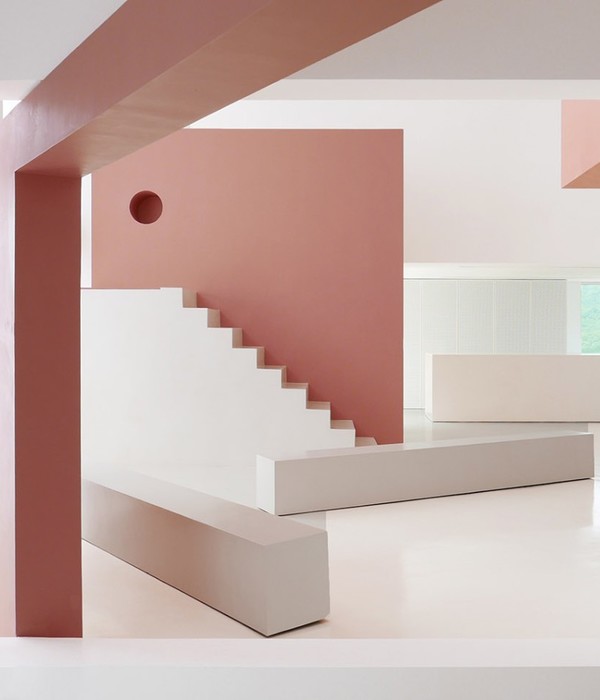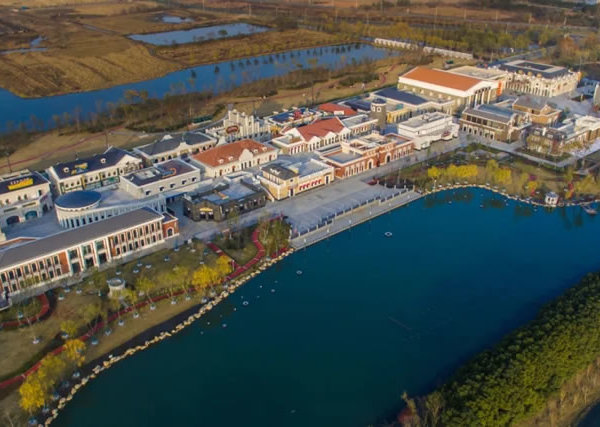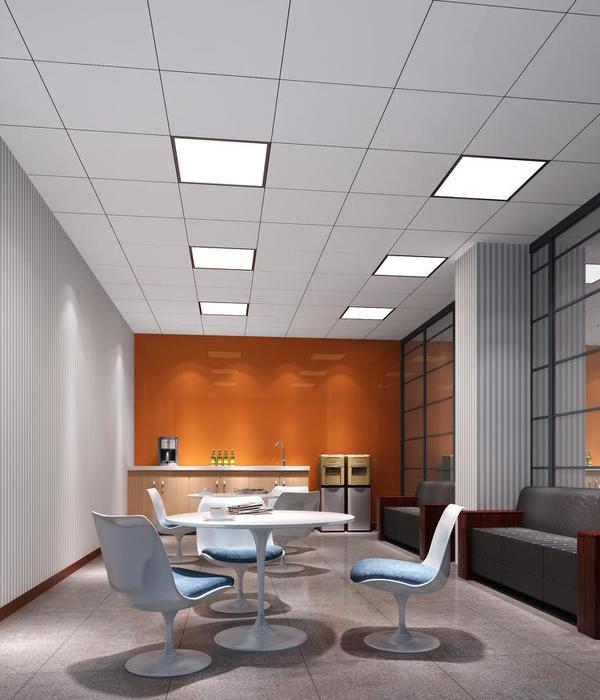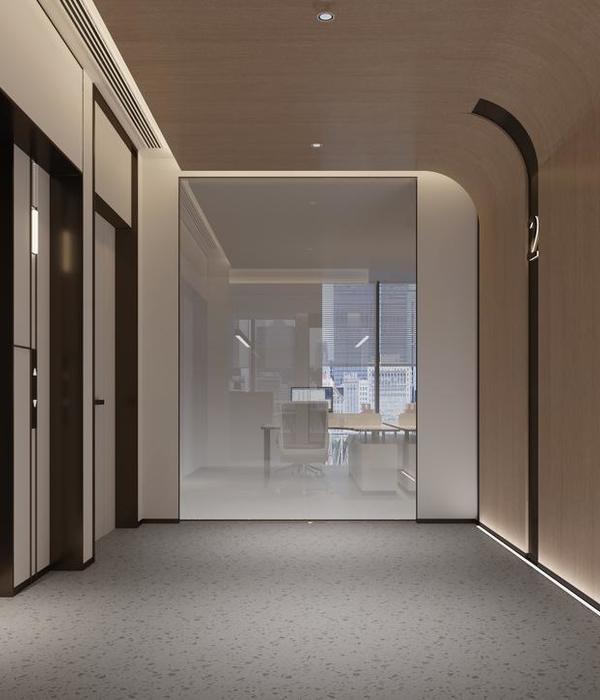Sam Spade’s (Bogart) cult lines conclude the equally quintessential Maltese Falcon. Often considered to be the archetype of the film noir genre. John Huston’s movie is a trendsetter of the cinematic genre that emerged in the 1940s. Here, mysteries, schemes, and shadowy narratives are set in a moody urban decor at night. In a gritty world of shadows, the protagonists evolve with darkness wrapped all around them and the moon as a spotlight.
Shot entirely in Warner Bros' backlot, the film's cinematography, marked by its chiaroscuro low-key lighting, labyrinth of dimly lit streets, and shadowy back alleys epitomizes the visual style and the cynical nature of the characters.
The new decor of the post-production film studio based in
relies on similar strategies to create a unique atmosphere. Entirely covered in a thick dark layer of paint, the volumes of the project are both the backdrop of the actions to come and the protagonist of the plot. Cinematographic moments appear, artificially lit by oversized (moon)lights. Empty street corners and alleyways await for their characters.
As in Hopper’s Nighthawks, painted just a few months after the Maltese Falcon’s release, the architecture serves as a stage upon which the human drama unfolds. Its clean lines and geometric shapes enhance the overall visual impact of the composition, capturing the essence of urban alienation, creating a sense of immediacy, and inviting speculation about the stories hidden within the architecture of the cityscape.
{{item.text_origin}}

